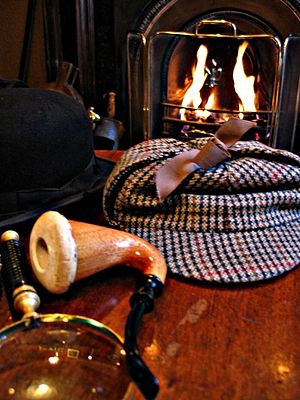 Image via WikipediaA scant 84 years ago this Halloween, the legendary stage magician and escape artist Harry Houdini died from appendicitis mere hours after performing on stage. Adherents to mysticism would no doubt ascribe some occult significance to Houdini -- a magician so successful as to be accused of actual sorcerous dematerialization -- dying on All Hallows Eve. Such suppositions would also no doubt irritate Houdini, who spent much of his life and career debunking fraud psychics and spirit mediums.
Image via WikipediaA scant 84 years ago this Halloween, the legendary stage magician and escape artist Harry Houdini died from appendicitis mere hours after performing on stage. Adherents to mysticism would no doubt ascribe some occult significance to Houdini -- a magician so successful as to be accused of actual sorcerous dematerialization -- dying on All Hallows Eve. Such suppositions would also no doubt irritate Houdini, who spent much of his life and career debunking fraud psychics and spirit mediums.This professional skepticism earned Houdini the ire of many of his contemporaries, including Sherlock Holmes creator Sir Arthur Conan Doyle, who was himself a staunch believer in supernatural phenomena. Ironically, it was Houdini the non-believer who developed a technique for continuing to debunk pyschics from beyond the grave.
What method did Harry Houdini use to debunk psychics even after his death?

![Reblog this post [with Zemanta]](http://img.zemanta.com/reblog_e.png?x-id=5fbf4315-9a7c-45b6-b02b-02c765e56849)